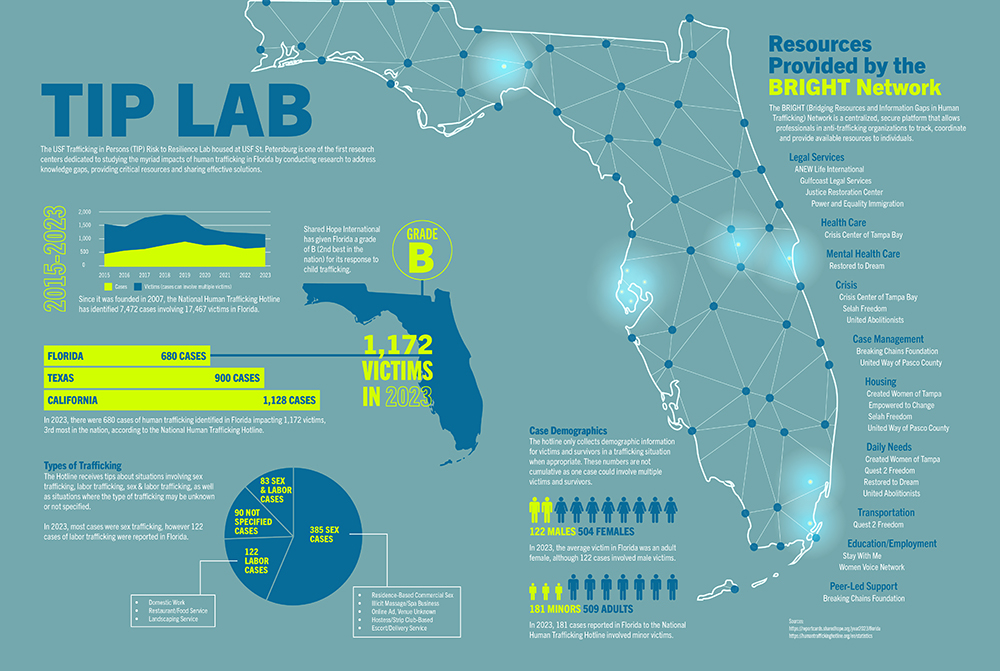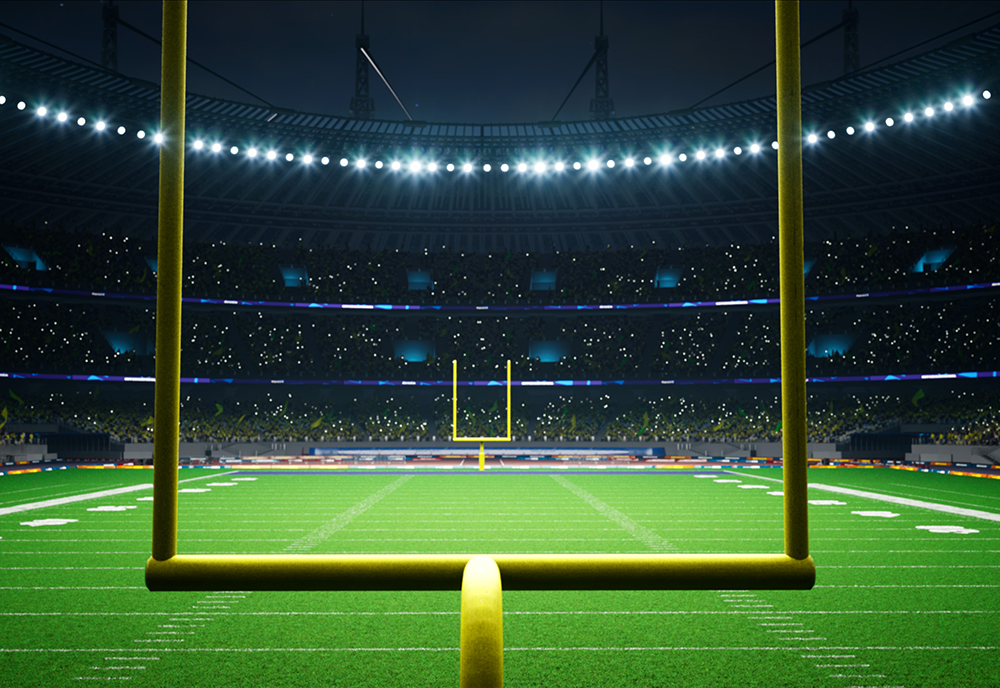By Matthew Cimitile, University Communications and Marketing
Every year, the Super Bowl descends on an American city, bringing excitement, pageantry and a lot of fans to town.
Along with the glitz and attention, the Super Bowl has been known to bring a seedier element to host locations: sex trafficking. But USF researchers say the widely held perception that one of the biggest sporting events in the world is a magnet for sex trafficking is largely unfounded.
“Most of the recent research around this issue has shown it is far more myth than reality,” said Joan Reid, professor of criminology at USF St. Petersburg. “Sex trafficking occurs in the dark and is kind of hidden. Around the Super Bowl, everyone turns on their flashlights and starts looking.”
There are a number of reasons for why this notion took hold. For one, sex traffickers need a market and it is assumed they target major events and cities where there is an influx of people. A sporting event also draws a large crowd of men, potential buyers for sex workers.
These assumptions, fed by vast media attention and scrutiny that come with the Super Bowl, led law enforcement to devote more resources to policing trafficking activities where the Super Bowl was hosted. For example, specific police units are often redirected to focus on trafficking around the event.
As law enforcement efforts ramped up in host cities, so too did awareness and prevention efforts by anti-trafficking organizations.
“Such organizations will go to host cities and train officers on what to look for, raise awareness through ‘see something, say something’ campaigns and provide tip line information to the public, including hotel and motel staff where such activities are likely to take place,” said Jessica Grosholz, an associate professor of criminology at USF Sarasota-Manatee. “Because of this perception, it followed that wherever the Super Bowl was held, there needed to be this larger effort to prevent trafficking in these communities.”
The heightened scrutiny resulted in more trafficking arrests around the Super Bowl, which was then magnified by the greater media presence.
Data confirms that this notion is more myth than reality. A study in “Anti-Trafficking Review” examined 55 scholarly articles on the connection between major sports events, including the Super Bowl, and trafficking rates for sexual exploitation. The study found little empirical evidence connecting the two. Overall, experts say no direct link exists between the Super Bowl and an increase in sex trafficking.
“When trafficking happens, those who spot it are ready to call law enforcement, and law enforcement is ready to apprehend suspects, but that doesn’t mean there are more cases. What is increasing is the awareness of this issue around the Super Bowl,” Reid said.
What is true is that Florida and the Tampa Bay region have higher incidents of this illegal activity than most places in the United States. In its 2024 Trafficking in Persons report, the U.S. Department of State estimated that 27 million people worldwide were victims of human trafficking. A majority of those victims were trapped in sex trafficking activities, with a high percentage in Florida.
“Florida ranks third in the country behind California and Texas, based on data from the National Human Trafficking hotline and the Polaris Project,” Grosholz said.
The state’s high ranking is attributed to a number of reasons. Florida is a tourism destination, bringing in an influx of people throughout the year. There is a large degree of poverty in the state, while the warm weather attracts populations of migrant workers, creating a vulnerable population that traffickers can ensnare. And Tampa Bay has a large adult sex industry, pulling in sex workers and people coming to town for sex tourism.
It is these persistent conditions and vulnerabilities, not incidents tied to any one event, that has led the University of South Florida to establish the Trafficking in Persons (TIP) Risk to Resilience Research Lab.

The TIP Lab is one of the first research centers dedicated to studying the myriad impacts of human trafficking in Florida. Researchers with the lab, including Reid, who is the director, Grosholz and Assistant Director Shelly Wagers, work with both law enforcement and anti-trafficking organizations to address knowledge gaps, provide critical resources and share effective solutions.
Launched in 2021, the TIP Lab has become the state’s repository for anonymous human trafficking data and is tasked with analyzing and understanding the magnitude and trends in human trafficking across the state and over time.
The mission of the lab is to eradicate human trafficking locally and beyond.
“The heightened awareness of this issue around the Super Bowl isn’t a bad thing, but we need to keep in mind that this happens every day in our cities and town, and we need to combat it in that way,” Grosholz said.
